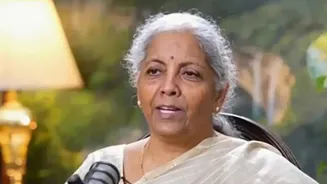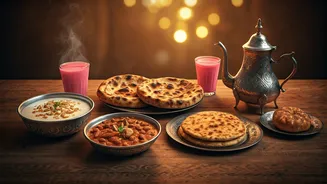Finance Minister Nirmala Sitharaman on Monday said the government is preparing a comprehensive support package for Indian exporters hit by the 50 per cent
tariff imposed by the United States, as part of its ongoing trade crackdown. Speaking to PTI, Sitharaman noted that various ministries are already engaged with industry stakeholders to assess the scale of damage. “So, we are getting their inputs... something is being worked out to do some hand-holding for those exporters who have been affected by the US tariff of 50 per cent,” she said, adding that ministries are asking stakeholders to quantify the impact. The US, India’s largest trading partner since 2021-22, imposed the duties in two phases — first a 25 per cent levy on 7 August, followed by a second tranche effective 27 August. Washington cited India’s continued imports of Russian crude and “long-standing trade barriers” as justification. Sectors Most Exposed The higher duties have disproportionately impacted labour-intensive sectors including textiles, gems and jewellery, shrimp, leather, and footwear, as well as animal products and some machinery. Pharmaceuticals, energy products, and electronics have been spared. The United States accounted for 20 per cent of India’s $437.42 billion exports in FY25, with bilateral trade touching $131.8 billion. Given this scale, the tariff shock poses risks to both export earnings and employment in vulnerable industries. Chief Economic Adviser Anantha Nageswaran has separately warned that the tariffs could shave 0.5 per cent off India’s GDP if not mitigated. GST Reform for Consumers Sitharaman also underlined that domestic reforms will help buffer the economy. She announced that India’s GST system will undergo its most significant overhaul since 2017, with tax slabs reduced to 5 per cent for essentials and 18 per cent for most other goods from 22 September. Luxury and sin goods will face a new 40 per cent rate. “This is a reform which touches the lives of all 140 crore people,” she told PTI, stressing that lower taxes on daily essentials such as bread, milk, and toiletries would reduce household expenses while boosting consumption. Analysts note that the combination of tariff relief for exporters and GST cuts for consumers could help India weather external shocks while strengthening domestic demand.













